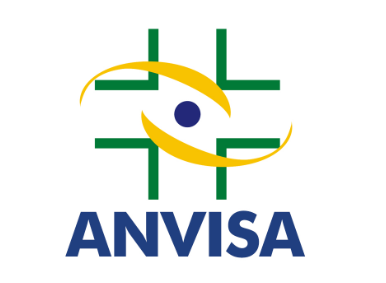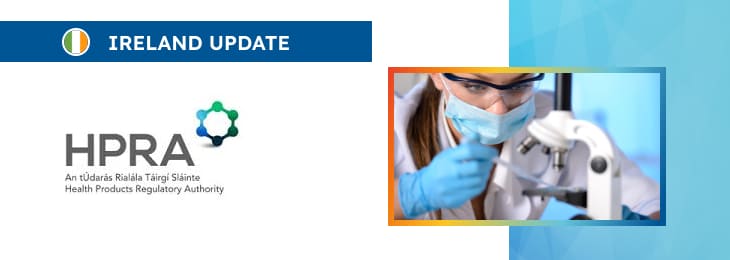The article provides a brief overview of the regulatory requirements applicable to personalised medical devices intended to be marketed and used in Brazil.

Table of content
ANVISA, a Brazilian regulatory agency in the sphere of healthcare products, has published a guidance document dedicated to personalized medical devices. Structured as a questions-and-answers document, the guidance outlines the key points to be taken into consideration by medical device manufacturers and other parties involved and also provides additional clarifications and recommendations.
At the same time, it is important to mention that provisions of the guidance and recommendations provided therein could be subject to changes, should such changes be reasonably necessary to reflect corresponding amendments to the underlying legislation.
Clarifications on RDC No. 925, Dated September 19, 2024
Considering the requirements outlined in the Collegiate Board Resolution (RDC) No. 305 of September 24, 2019, which has been revoked by RDC No. 925 of September 19, 2024, concerning the manufacturing, commercialization, importation, and use of personalized medical devices, the General Management of Health Product Technology provides the following clarifications:

1. Why is Notification Required?
It is possible to exemplify the various types of personalized medical devices. These devices are typically categorized based on the level of customization required for individual patients.
They may include custom-made implants, patient-specific instruments, or adaptable devices that can be adjusted to meet individual needs.
2. Regularization of Patient-Specific Medical Devices with Anvisa
Article 3 of RDC No. 305, dated September 24, 2019, states that patient-specific medical devices must be regularized with Anvisa in accordance with the criteria established in RDC No. 751 of September 15, 2022, and other existing regulations. The regularization process should consider whether the devices need to be categorized by size ranges or other defining characteristics to ensure compliance.
3. Application of Grouping Requirements
For patient-specific medical devices, the grouping requirements into families, systems, or sets, as stipulated in current regulations, also apply. This means that devices should be classified appropriately to facilitate regulatory processes and ensure that similar devices are grouped for ease of management and oversight.
4. Requesting Manufacture or Import of Custom-Made Medical Devices
To request the manufacture or import of custom-made medical devices, entities must follow the procedures outlined by Anvisa. This typically involves submitting detailed documentation that demonstrates compliance with regulatory requirements and justifies the need for customization based on patient-specific conditions.
5. Consent for Each Custom-Made Medical Device
Consent for the manufacture or import of custom-made medical devices is granted on a per-device basis. Each device intended for a specific patient must receive individual approval to ensure that it meets all safety and efficacy standards set by regulatory authorities.
6. Definition of “Same Intended Use”
For the purposes of submitting a petition for consent under Article 9 of RDC No. 305, “same intended use” refers to devices that are designed to perform the same function or address the same medical condition. This definition helps streamline the approval process for devices with similar applications.
7. Regularization of Class I and II Custom-Made Medical Devices
Class I and II custom-made medical devices must also be regularized with Anvisa. It is necessary to request consent for the manufacture or import of these devices, and notifications should be made for each product to ensure full compliance with regulatory standards.
8. Eligibility to Request Consent
Entities eligible to request consent for the manufacture or import of custom-made medical devices include manufacturers and importers duly recognized by Anvisa. Importers operating under a Declaration of the Product Regularization Holder (DDR) can also request such consent, provided they meet all necessary requirements.
9. Regularization of Patient-Specific Implantable Devices
If a product is a patient-specific implantable medical device that does not fit the definition of a custom-made device and lacks registration with Anvisa, its manufacture must be suspended until it is regularized under the appropriate registration regime. Compliance with regulatory standards is mandatory before resuming production.
10. Handling Ancillary Devices Manufactured Commercially
In cases where a custom-made device requires an ancillary component manufactured on a commercial scale, the appropriate procedure must be followed. Prior to RDC No. 305, such systems were exceptionally authorized on a case-by-case basis.
Under the new regulation, both the custom-made device and its ancillary components must comply with current regulatory requirements.
11. Classification of Products
For uncertainties regarding whether a product is classified as custom-made, patient-specific, or adaptable, entities should consult Anvisa’s guidelines or seek professional advice. Proper classification is essential for compliance and affects the regulatory pathway that the product must follow.
12. Conducting Clinical Trials Post-Notification
After submitting a notification as defined by RDC No. 305, entities may conduct clinical trials with the product, provided they adhere to all regulations governing clinical research. Necessary approvals and ethical considerations must be addressed before commencing any trials.
13. Information Required in Notification Forms
In the “Identification of Types of Custom-Made Medical Devices to Be Manufactured” section of the notification form, detailed information about the device types should be provided. This includes descriptions of the devices, their intended uses, and any unique characteristics that define them as custom-made.
14. Including New Devices in Declarations
If a company needs to include new medical devices in the “Identification of Types of Custom-Made Medical Devices to Be Manufactured” section of the Declaration of Responsibility, they must update the declaration accordingly. This may involve submitting additional documentation or amendments to reflect the new devices.
15. Commencement of Manufacturing Post-Approval
Manufacturing of the custom-made medical device can begin after the approval of the consent. Entities must wait for official authorization from Anvisa before initiating production to ensure full regulatory compliance.
16. Documentation Issued for Notifications
Anvisa will issue relevant documentation for the notifications of custom-made medical devices. This documentation serves as an official acknowledgment of the notification and may be required for future reference or compliance verification.
17. Notification for Multiple Devices Prescribed to the Same Patient
When a healthcare professional prescribes multiple devices, such as osteosynthesis plates, for the same patient, it is permissible to submit a single custom-made product notification. This streamlines the process and ensures that all devices intended for a single patient are covered under one notification.
Conclusion
In summary, these clarifications aim to assist manufacturers, importers, and healthcare professionals in understanding and complying with the requirements of RDC No. 925. The authority additionally emphasizes the importance of ensuring compliance with these guidelines for ensuring the safety, efficacy, and general regulatory compliance of personalized medical devices within the healthcare system.
How Can RegDesk Help?
RegDesk is an AI-powered Regulatory Information Management System (RIMS) designed to simplify global compliance for medical device companies. With regulatory intelligence covering 120+ markets, RegDesk helps you prepare and publish global submissions, manage standards, conduct impact assessments, and stay ahead of regulatory changes all from a single, centralized platform. Expanding into new markets has never been easier.

